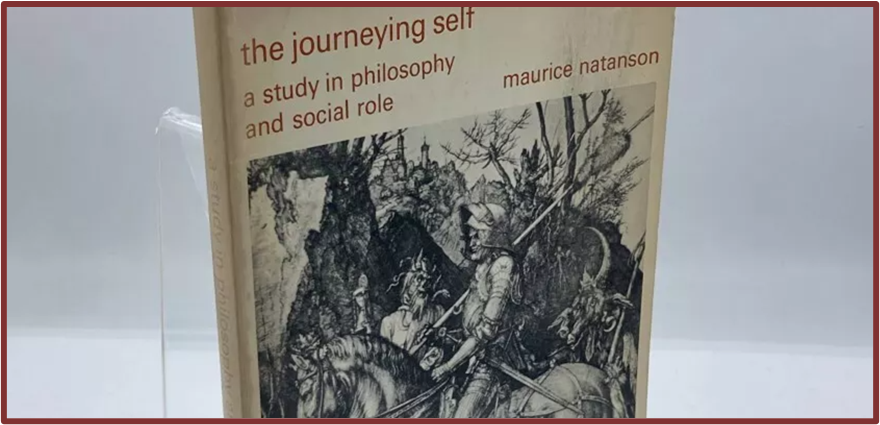I must admit, it was not typical clickbait, the headline that caught my attention: Right-Hegel Meets Left-Hegel: The misreading of Hegel that Alexandre Kojève shared with Leo Strauss. But click I did; there was, after all, 51 years of guilt to assuage.
During the final term of my undergraduate years, spring of 1973, I enrolled in a senior seminar having to do with phenomenology. (The discipline of phenomenology may be defined initially as the study of structures of experience, or consciousness. – Stanford Encyclopedia of Philosophy) If I remember correctly, I was invited to register for the class by one of the professors and was flattered by the invitation. There were probably a dozen students in the class and three or four full professors teaching it. Heady stuff. I wrote my final paper on Edward Abbey’s Desert Solitaire and did well enough.
I have felt guilty about the decent grade ever since.
One of the professor’s books, The Journeying Self, was a primary text for the seminar, and I didn’t understand a word of it. I felt like my journeying fifth-grade self who did not understand the logic, the method, or the purpose of long division. But unlike my fifth-grade teacher who caught on to my confusion early, my PhD professors seemed not to notice how lost I was. They just kept on lecturing, and I just kept on not getting it.
Of course, if you’re going to understand phenomenology, at some point you’re going to have to deal with Georg Wilhelm Fredrich Hegel. We read some Hegel, and I had no idea what the famous philosopher was talking about. But I kept showing up for the seminar and kept being confused.
For the past 51 years, I have come across Georg Wilhelm Frerich Hegel from time to time, and I always feel guilty when I do. I took that senior seminar, received a decent grade, but never really understood what was going on. I should apologize to my PhD professors, but they are all dead.
It turns out that reading about the ways Alexandre Kojève misread Hegel helped me understand Hegel, if only for a moment. When I reread the article about the misread, I wasn’t so sure I actually got it. But for one glorious moment…
It took a few agonizing weeks to get on top of long division, and fifth grade went pretty well after that. It’s taken 51 guilt-laden years to make the least bit of sense out of Georg Wilhelm Fredrich Hegel. I’m glad for it, even if I can’t tell my professors about it.
It’s also nice to know that I’m still able to learn something new. Old dogs and all that.
John Calvin is reassuring when it comes to feeling guilty about the limits of our understanding. Writing in the Institutes about providence, he says, “It is not right for a person unrestrainedly to search out things that the Lord has willed to be hid in himself, and to unfold from eternity itself the sublimest wisdom, which he would have us revere but not understand that through this also he should fill us with wonder.”
Phenomenology and the philosophy of Georg Wilhelm Fredrich Hegel may not be sublime wisdom or fill us with wonder, but they may be among those things it is not right for a person unrestrainedly to search out.
Finally getting the logic, method, and purpose of long division has turned out to be helpful in my life. We’ll see about Hegel.

